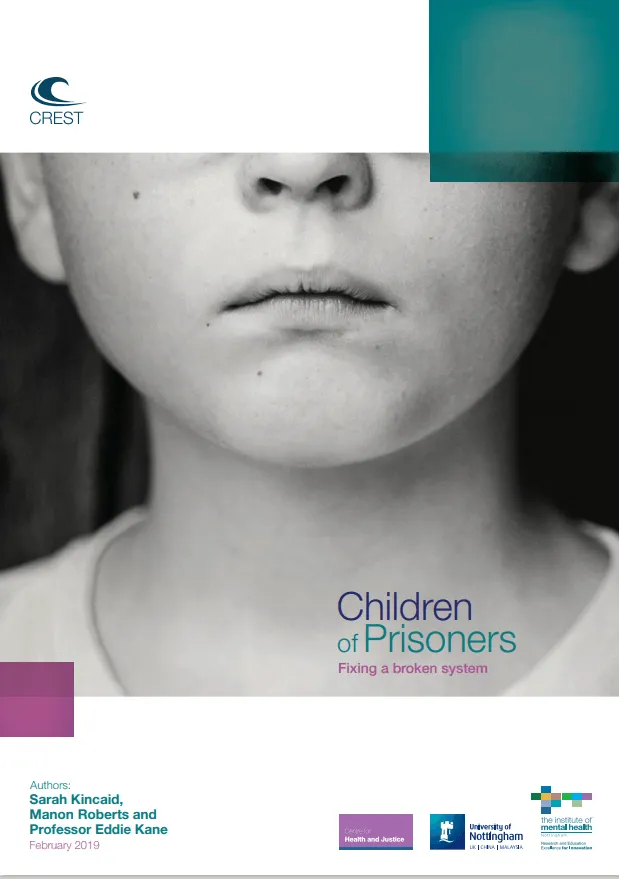
Children of prisoners are at risk of significantly worse outcomes than children not affected by parental imprisonment. These include, amongst others, an increased risk of future offending, mental health issues, and poor educational attainment. The extent to which parental imprisonment is a specific and independent risk factor is contested. Nonetheless, recent research shows that parental imprisonment is associated with a fivefold increase in exposure to other adverse childhood experiences.
Despite such findings, children of prisoners remain an ‘invisible’ group – currently, children are not systematically identified or assessed when a parent goes to prison. As a result, there is no record of who, or even how many of these children there are. Currently used estimations, based on data from 2008, put the number of children of prisoners in England and Wales at 200,000. However, new Crest research (see chapter 3 of the report) shows that there are significantly more children – an estimated 312,000 – affected by parental imprisonment than previously thought. This has profound implications for the development of sufficient and appropriate services for children of prisoners.
That parental imprisonment is of itself an adverse experience, associated with additional disadvantages for children affected, suggests that a parent going to prison should be a red ag for services to ensure the wellbeing and support needs of the child or children in that family are addressed. However, no such red ag currently exists.
Information gathering and assessments are undertaken at numerous points during offenders’ journeys through the criminal justice system. However, information relating to the families of offenders is collected inconsistently, for different purposes and is not used in any systematic way neither to understand the wider family picture nor to engage with services who are best placed to support families while the family member is in prison.
Provision for prisoners and their families is largely provided by the voluntary and community sector. There are many excellent family services working in custody and in prison visitors’ centres to support families and ensure prisoners and families are able to stay in touch. Lord Farmer’s review and the Government’s response have the potential to change the prison landscape to create a greater family focus, making Governors responsible for a family and significant others strategy in every prison.